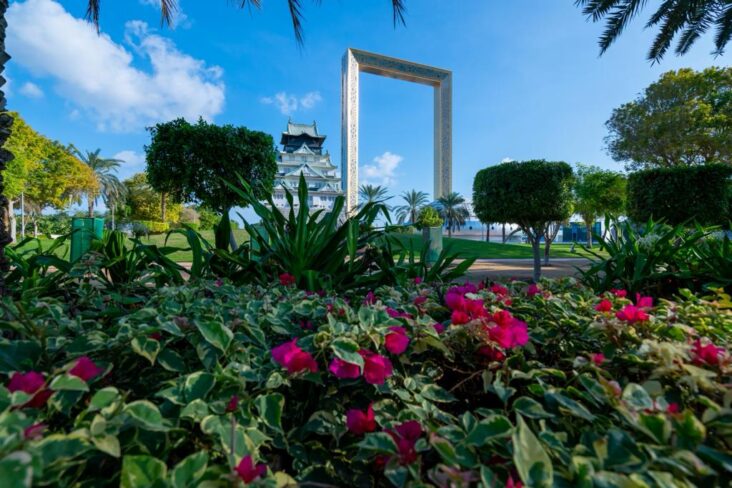Dubai Municipality achieves a new record in tree planting in Dubai during 2023

Dubai Municipality successfully planted more than 185,000 trees in the Emirate in 2023 as part of its afforestation initiative, with an average of 500 trees daily, increasing the total green area by 234 hectares, up from 170 hectares in 2022.
This achievement highlights the Municipality’s commitment to fostering sustainable development and preserving the environment for future generations. The seeks to increase green spaces in residential areas, urban areas, as well as main and secondary roads and bridge intersections. The initiative further places a major emphasis on enhancing air and soil quality, in addition to elevating the city’s aesthetic appeal.
H.E. Dawoud Al Hajri, Director General of Dubai Municipality, emphasized that the Municipality’s Green Dubai’s initiative is a year-round effort and adheres to comprehensive engineering and planning standards, which are in line with Dubai’s modern lifestyle and its urban and architectural development and supports the vision of the wise leadership in making Dubai the best city for living in the world.
Furthermore, H.E. also stated that the initiative reflects Municipality’s efforts to increase green spaces, improve urban and natural environments, and promote environmental sustainability, thereby positioning Dubai as an aesthetically pleasing, sustainable, and appealing city. HE added that the objective is to provide a better living environment for residents by enhancing the quality of life and overall wellbeing.
H.E. Al Hajri said: “Green Dubai’s initiative is one of the key components of the Municipality’s strategic efforts towards sustainability. By safeguarding and optimizing the use of natural resources and elements as well as substantially lowering carbon emissions in the Emirate, this initiative seeks to have a positive effect on the environment. This is in line with the strategy and national goals to become carbon neutral by 2050.”
“The initiative significantly contributes to creating and enhancing green spaces for leisure, relaxation, and connecting with nature. Furthermore, it has also improved the cultural and aesthetic appeal of Dubai, ensuring environmental preservation for future generations.” Al Hajri added.
Numbers and Statistics
The Municipal teams in Dubai collaborated in 2023 to achieve the initiative’s various goals, where 185 thousand trees were planted in 210 sites, such as agricultural projects, nature reserves, main and secondary roads, in Deira and Bur Dubai, in addition to the Municipality’s parks.
Dubai Municipality has introduced a variety of trees across its planting initiatives, including local environmental species, such as Ghaf, Sidr, Sumar, Neem, Olive, Samorova palm, Indian jasmine, and palm-like trees. Additionally, many other evergreen plants, renowned for their rich green foliage, have also been included, including Washingtonia, Bismarckia, Pseudobombax, Poinciana, Bougainvillea, Acacia farnesiana, and Darsina.
Qualitative Shifts
The Municipality has made significant progress in agriculture and tree planting in recent years. It planted a total of 73,920 trees in 2020. By the end of 2023, this number had reached an astounding 185,000 trees, from 170,339 in 2021. This progress demonstrates the Municipality’s dedicated efforts to encourage afforestation and enhance green spaces, as well as increase individual’s share of green spaces in the urban area, in harmony with the Emirate’s urban expansion and population growth.
Encouragement
To successfully meet the environmental requirements in Dubai, the Municipality is actively promoting the development of both natural and man-made green areas, following the highest global standards and practices. Moreover, it places a major focus on planting local tree species, such as Ghaf and Sidr, which are well-suited to flourishing in the region’s soil salinity conditions.
As part of its commitment to sustainable agriculture, Dubai Municipality offers integrated agricultural services that utilize state-of-the-art technologies and practices. These modern approaches not only prioritize public safety but also promote long-term sustainability of the local ecosystem.


